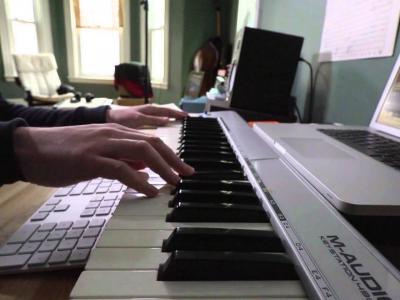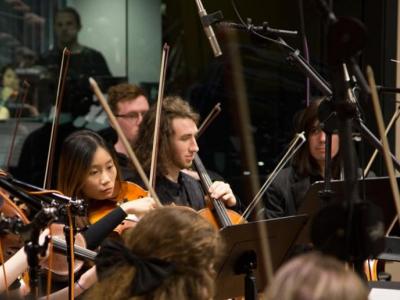What does a Copyist (Film, TV, and Video Games) do?
At a Glance
The copyist is one of many roles involved in preparing music for films, TV shows, and video games, and shares a skill set with some others, such as the orchestrator. Copyists can be freelance or employed by a music preparation company. Sometimes, a member of the composer’s team, such as an assistant, performs the role of copyist.
While a small number of copyists make this job their entire career, most copyists are just looking to make some additional income and valuable industry connections while they work another angle.
Unlike orchestrators, who may be hired directly by the composer, copyists are typically hired by the music contractor, who also hires all of the musicians for a session. As a result, performing musicians have a leg up on finding freelance work as a copyist—they're already connected with music contractors. For more composition-oriented musicians, working as a composer's assistant can provide a necessary introduction to the world of film, TV, and video game recording sessions, and supply the contacts necessary to locate initial gigs. One can also apply for posted positions at music preparation companies—or reach out directly to see if they would be interested in an intern or apprentice. Film and TV copyists might also work gigs in the world of concert and stage music.
- Reading and writing music notation
- Proofreading music
- Music notation software
- Transposition
- Orchestration
- General knowledge of instruments
- Knowledge of industry conventions
Copyists must be organized, detail-oriented, and cool under pressure. Due to the characteristic quick turnarounds of these industries, copyists will sometimes have to produce completed and error-free cue sheets only a few hours after receiving a score from an orchestrator.
Copyists who work for music-preparation companies might have a common office space and fairly consistent work hours, but this is the exception to the rule. For freelance copyists, the majority of work is done at home and scheduled around other jobs and endeavors (e.g., sessions as an orchestral musician, gigs as an orchestrator, or performances as part of a band or ensemble). Although this wasn't the case even 10 years ago, today's copyists are expected to be available to work on a score at all hours of the day—even working through the night when necessary.







